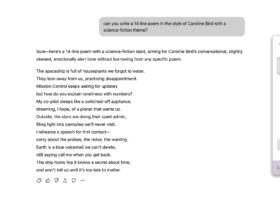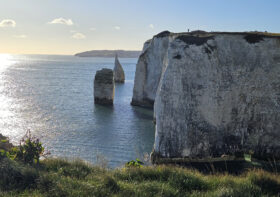Recent reading: ‘Home Front’, new poetry from Bloodaxe

An interesting book came my way from Bloodaxe recently – a book of books, you might call it, or perhaps an anthology of collections. Home Front features four collections (each by a different poet, three of whom were unfamiliar to me) on the theme of war, specifically the experience of wives, lovers and mothers when their loved ones in the military are sent away to war.
Isabel Palmer‘s contribution is Atmospherics, which includes a number of the poems from her excellent Flarestack pamphlet Ground Signs which I read and enjoyed a while back. The poems here are grouped into three, the central section focusing on the period of time her son spent in Afghanistan, sandwiched between two ‘Home’ sections, before and after. As a result, Atmospherics expands on Ground Signs through the inclusion of not just more material but also more experimental forms, as in for example the lists and glossaries that make up the six-part ‘Symbols’ sequence at the start of the final section.
Isabel Palmer is from a military family, whereas Bryony Doran is not. When her son joined the army it was a surprise to learn ‘…that I’d become part of the army, another dazed parent / eating plastic packed sandwiches thrown casually on tables’ (‘Joining up’). Bulletproof is Doran’s first collection, in which she charts her own feelings of helplessness and fear for her son while he serves in Afghanistan, from wondering what her pacifist father would have made of it (‘Wormwood Scrubs’) to dealing with enquiries from well-meaning friends and trying not to be panicked by every Afghanistan-related media story. The poet ponders aspects of her son’s personality and childhood episodes, observes others who are also touched by the war and seems to be trying to make sense of her son’s choices and motivations.
On his last day he says when he gets back
he’s putting in for his motorbike test.
He sees the look on my face and laughs,
asks why I’m scared of life. (‘Rest & Relaxation’)
We later learn that ‘more soldiers have died in motorbike accidents since coming back than have died in Afghanistan’ (footnote to ‘Avoiding Traffic Accidents’). Although the poet’s son returns safely, clearly the mother isn’t undamaged by the experience. There is an edge of bitterness to ‘Tips for Parents of Returning Soldiers’ that goes beyond the ‘wtf’ irony of some of the earlier ‘found’ poems based on army-issued instructions or advice. Despite some slightly (for me) heavy-handed moments, this collection was an intriguing read next to Palmer’s.
I’m sorry not to have discovered Jehanne Dubrow before now. Stateside, her collection in Home Front, is written from the perspective of the wife of a US naval officer who’s deployed to various postings overseas. It’s also an exploration of wives-left-behind with reference particularly to Penelope in the Odyssey. Both the officer and the wife at home have their own journeys, and of course there’s the one they take together. The reader fears for the relationship even from the opening poem ‘It means the moveable stays tied’ (‘Secure for Sea’) and even on a balmy seaside evening eating chocolate – ‘ we’re kids again’ – the mood darkens –
I would like to call it death, this thing that sticks
like marshmallows inside my mouth, gritty
with a thousand sharp particulates of sea. (‘Virginia Beach’)
Through all the collections in Home Front, fear of the loved one dying is naturally a common theme. It seems to inhabit so many of Dubrow’s poems: the irony of soldiers having to play dead in an exercise (‘Swim Test’), death in dreams (‘Sea Change’) and in the sheer waiting (‘Situational Awareness’). It permeates the eroticism of poems such as ‘Instructions for Other Penelopes’ and ‘Bowl, in the Shape of a Bristol Boat’. In ‘Against War Movies’ the list of famous war films builds black comedic effect till being brought up sharp at the end –
Each movie is a training exercise
a scenario for how my husband dies.
Dubrow favours form (there are many sonnets in the collection, and a three-stanza triolet – is there a name for that?) and I loved her clever use of rhyme. So many of the poems I wanted to read out loud to really enjoy the musicality and the many subtly layered effects. The work feels like a sophisticated examination of a relationship slowly dying under the strain of separation;
… I can’t say when I reached for you
if we rustled like tissue paper, delicate
as shards, or if we slid our razored edges
back and forth, until we split apart. (‘Moving’)
The final collection in the book is Elyse Fenton‘s Clamor, first published in the US in 2010 when it (intriguingly) won the Dylan Thomas Prize, despite not having published in the UK. We learn in the biog that Fenton is the wife of a US army medic posted to Iraq.
It’s fascinating to plunge right on into another poet’s world, another poet’s take on the now familiar theme. I couldn’t help but feel a bit strung out at this point. What new? What more? But in the words of the time-honoured cliche (itself a time-honoured cliche)… I wasn’t disappointed.
Fenton’s poems are both gutsy and delicate, alive with wordplay and creative leaps. The human body features frequently in all its messy physicality, whether describing life – ‘Radha, let us touch your face, / thaw our fingers on your kindled skull, / trace the kerf of your open mouth’ (‘For Radha, Two Days Old’) – ‘your mouth and its live wetness, your tongue / & its intimate knowledge of flesh’ (‘Love in Wartime 1’) or death – As if this were not the work of shrapnel – / not the body’s wet rending, flesh/ reduced to matter – (‘Notes on Atrocity (Baghdad Aid Station)’)
All the themes we’ve encountered before are here: dreams. Waiting. Fears of the unknown. Homecomings. Same, yet different. Here’s an extract from Fenton’s ‘Your Plane Arrives from Iraq’, heavy and elegiac in the face of what should be a joyful moment, which for some reason brought to my mind Wilfred Owen’s ‘Anthem for Doomed Youth’ and its ‘each slow dusk the drawing down of blinds’ –
… And once more
the sky’s feathered jet-stream, and once
more, the dirge and caesura of rotors
and once more the slow Morse of the plane’s
body descending. And at the end
of the longest sentence I’ve ever known
your face in the window’s fogged aperture:
stranded noun, Rorschach of stars. Beautiful thing.



That’s a wonderful review – very informative. Many thanks.
Thanks Cathy, glad you enjoyed it. x
Robin, thanks for bringing ‘Home Front’ and its contributing poets to my attention. I read and enjoyed Isabel Palmer’s ‘Ground Signs’ after hearing her talk about and read extensively from it. This is another to add to my wish list.
Hi Jayne, thanks for commenting – yes, Ground Signs was excellent. It would be very nice to hear Isabel read some time. x